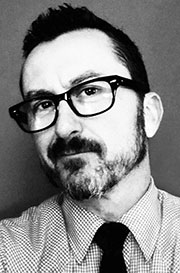May is National Mental Health Awareness Month, which gives me a good excuse to write about my favorite subject: Me. According to the Anxiety and Depression Association of America, “Nearly 450 million people worldwide are currently living with a mental illness, yet nearly two thirds of people with a known mental illness never seek treatment.”
Until about six weeks ago, I was one of those who secretly suffered for years, too afraid or too stubborn to seek help. Finally, with the encouragement of my loving wife, I reached out to my healthcare provider and was diagnosed with bipolar disorder. Immediately, I could feel a weight lifted off my shoulders.
My sudden sense of relief was not due to the medication I was prescribed. Instead, it was the act of stepping out of the shadow of silent suffering and into the light of accepting help from others that removed the terrible burden I had been carrying for so long.
I am happy to report that after a month and a half of taking prescription medication, going on frequent walks in the woods, dabbling in meditation and breathing exercises, and limiting the amount of time I stare at my smartphone, I am feeling better. The overwhelming anxiety and crushing bouts of depression I had been struggling with for most of my adult life have been significantly diminished. I am not magically cured, however. I still struggle from time to time, but the intensity and duration of these episodes have lessened.
When I first wrote about my mental health struggles back in March, I received countless messages of support and encouragement from friends, family members, and readers of my weekly columns. Several of those people shared with me stories about their own battles with mental illness. They were grateful that I had written about my issues, because it reminded them that they are not alone.
A lot of people are having a hard time right now. A deadly global pandemic, long periods of social isolation, angry and armed protesters, record unemployment, and a general sense of worry about when or if things will get back to normal are enough to fracture anyone’s sense of well-being. For people who suffer from mental illness, these outside factors can make an undiagnosed or untreated condition much worse.
I self-medicated with alcohol and “toughed it out” for a long, long time. Trust me, that’s not a sustainable or effective treatment plan. I now realize that there is no shame in asking for professional help. A person stricken with cancer wouldn’t hesitate to seek treatment, so why should it be any different for someone suffering from a mental illness?
If you have been struggling with your mental health, I want you to know that you are not alone. I see you. I am with you. There is hope for people like us. If you suspect that you might need help, please talk to someone right away. Don’t wait another day.
You deserve to feel better. You deserve to be happy.
As I said before, my bipolar disorder has not been cured, but I am feeling better. I also take comfort in knowing that millions of people before me who sought help for their mental illnesses have gone on to live long, happy, and healthy lives.
This month, the National Alliance on Mental Illness launched their “You are Not Alone” campaign, featuring the experiences of people affected by mental illness in order to fight stigma, inspire others, and educate the public. The organization’s website, nami.org, provides a wealth of resources to people living with mental illness and to the people who love them. The toll-free number for their helpline is (800) 950-NAMI. In a crisis, text “NAMI” to 741741.
Get help. Be well. Live your best life. And remember; you are not alone.









Facebook Comments